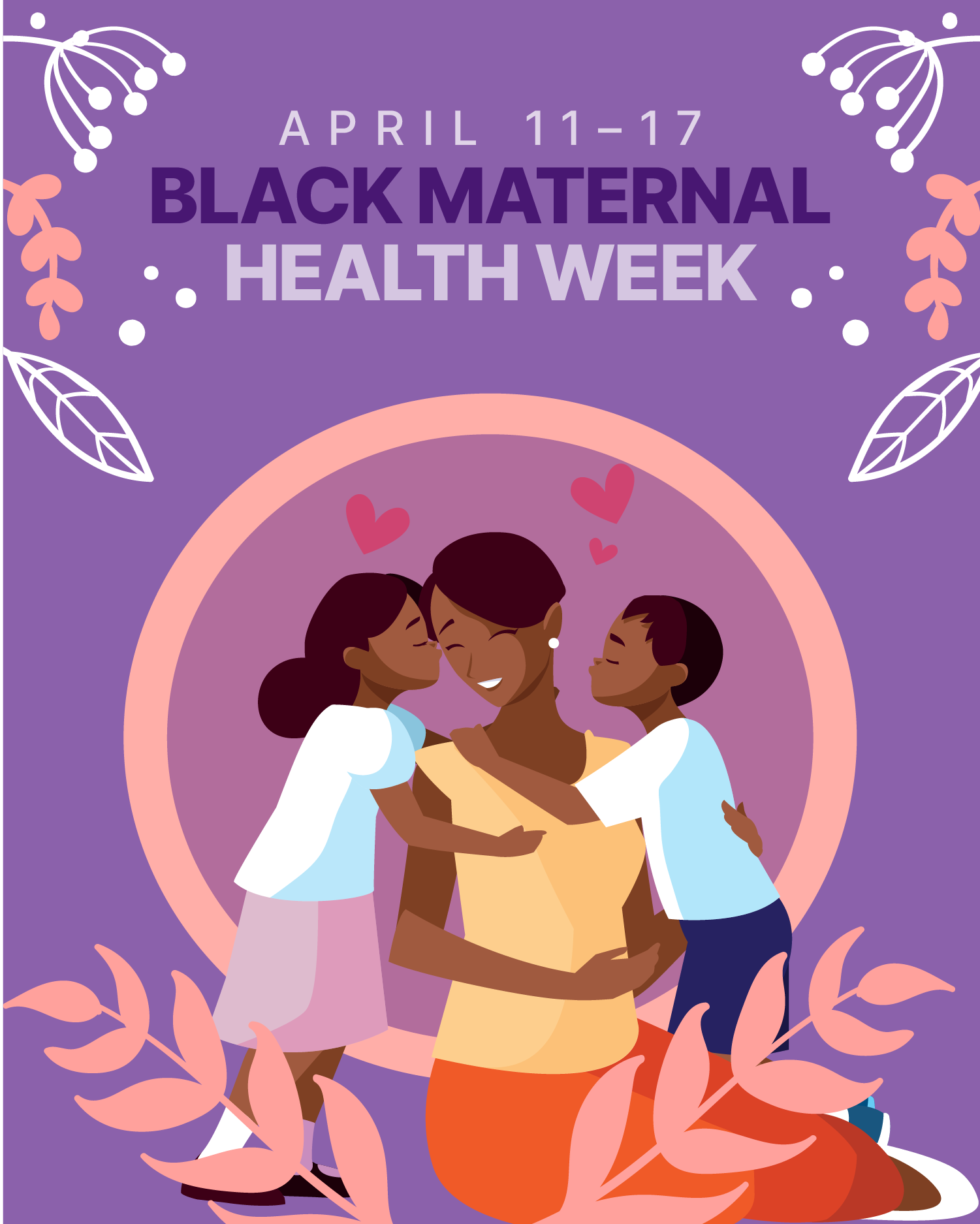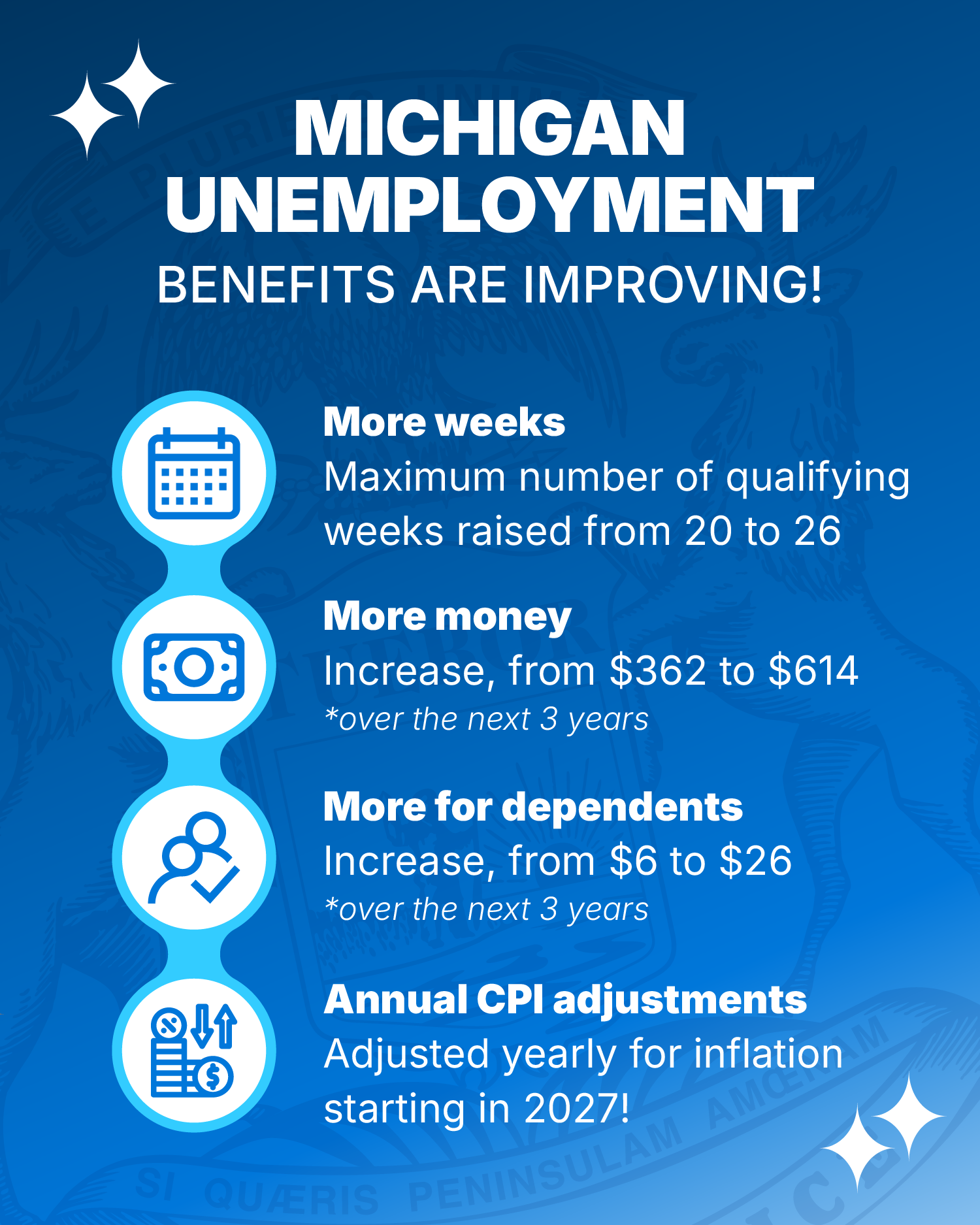
Dear Neighbor,
Between a devastating ice storm hitting northern Michigan and continued chaos at the federal level hitting our entire state’s economy, federal workers around the state, nonprofits, and communities everywhere, there is a lot of uncertainty and anxiety about the road ahead. Please know that we are all in this together and our team in Lansing is working diligently to support our community through these challenging times.
In this newsletter, you can find information about our efforts to provide economic relief to Michiganders, protect seniors from abuse and financial exploitation, and more. Additionally, with severe weather events becoming increasingly common, as those frequently affected by flooding in parts of our community, please make sure to read more below about how to prepare for and respond to storms should they hit our area.
As always, please feel free to reach out to share your thoughts or seek assistance with any challenges you may be facing with state departments. You can email me at SenSChang@Senate.Michigan.Gov or call 517-373-7346 or 313-922-6949.
Sincerely,

Stephanie Chang
State Senator
District 3

- Senate Democrats take action to protect seniors and vulnerable adults from abuse and exploitation, creating a safe state for Michiganders of all ages.
- Join me for my Earth Day Environmental Town Hall on Wednesday, April 23, from 6:00 – 8:00 p.m. at the Wayne County Community College District – Eastern Campus, 5901 Conner St., Detroit, MI 48213.
- We observed Black Maternal Health Week from April 11-17 by passing the Michigan Momnibus bill package. My colleagues and I are focused on advancing equitable policies to ensure Black mothers and all mothers and their babies have healthy outcomes.

Michigan Senate Passes Legislation to Protect Seniors and Vulnerable Adults
Elderly individuals and vulnerable adults are at high risk of being subject to abuse and exploitation at the hands of family members, friends, or other close associates. According to the Michigan Dept. of Attorney General, more than 73,000 older adults in the state are victims of these crimes which can lead to serious physical and psychological effects such as depression, increased hospitalization, and premature death.
To protect older and vulnerable Michiganders from these threats, I joined my colleagues this week to pass Senate Bills 111–114, which would increase protections by:
- Creating an elder and vulnerable adult personal protection order (PPO).
- Increasing the amount of time prosecutors have to recover property in embezzlement cases where criminals have taken advantage of vulnerable adults.
- Protecting vulnerable adults even after death, treating those offenses the same as if the exploitation had occurred during the victim’s lifetime.
- Taking an all-in approach to preventing, intervening, investigating, and prosecuting abuse, neglect, and financial exploitation of older and vulnerable adults by bringing together local teams of experts.
This legislation now heads to the Michigan House for their consideration. Read more about this legislation here.
A People-First Budget for Michigan
Right now, my colleagues and I are working hard to craft Michigan’s next state budget. We believe that the budget should address the real needs of everyday Michiganders and serve the hardworking taxpayers who fund it.
We know the decisions we make will shape the future of our state. That’s a responsibility I don’t take lightly — and I’m proud to work alongside my colleagues to deliver a budget that puts people first. What are some things that you want to see prioritized in the next state budget? Let me know at SenSChang@Senate.Michigan.Gov.
Michigan Senate Passes Momnibus Bill Package
This week, the Michigan Senate passed the Michigan Momnibus bill package. This legislation comprises a multi-faceted approach to build on the existing community-driven programs, care solutions, improvements in prenatal care and maternal health care that amplifies the voices of Black birthing people, mothers, women, families, and stakeholders. My bill, Senate Bill 34, amends the Elliot-Larsen Civil Rights Act to make clear that “sex” includes but is not limited to pregnancy or lactation status.
It should go without saying — all people deserve a health care system that truly listens to them and provides them with quality care, regardless of the color of their skin. The Momnibus bill package offers a solution to address the multiple barriers that Black expectant moms and other moms of color face during their pregnancy, ensuring they and their babies are healthy throughout the childbirth process and the months that follow. I’m proud to have reintroduced this comprehensive legislation on National Maternal Health Awareness Day alongside my Senate colleagues earlier this year, taking crucial steps to advance equity and address discrimination in our health care system.
Re-introduction of School Building Closure Bill
This week, I introduced Senate Bill 204 to address the process of permanent school building closures. From 2010 to 2014, there were more than 100 school closures each year. Since then, the closure rate has slowed down, but each year at least a few schools close their doors. The majority of these closures take place over the summer, but since 2010 at least 60 schools closed during the fall or winter, potentially further disrupting students’ education. In 2018, a public school academy in Detroit abruptly closed on Oct. 1, less than a month into the school year, with hardly any notice to parents or students. It should be standard practice that parents and employees receive timely notice in order to be able to transition to another school, but Michigan lacks the guidelines to ensure that this takes place. In addition, in some areas of the state, school building closures have led to neighborhood blight and safety concerns because the buildings were not adequately secured following closure.
This bill would require that school boards and public school academy boards of directors each develop and implement policies and procedures regarding the closing of school buildings, which must include:
- Transition of pupils and their records to new schools;
- Selection of a records repository;
- Timely notification to parents of pupils and employees working at the school — at least one month before and with at least one public meeting, and for parents, including information about replacement school options; and
- Distribution of assets and proper securing of the building within 60 days after it is closed, if it is not anticipated to be leased or sold in a timely manner.
Under this bill, if a building closure decision is based on financial projections, the closure process must start by July 1 when the school board or board of directors has adopted a budget. Also, if a closure decision is not based on finances, the process must start before the end of the school fiscal year, unless there is an extenuating circumstance that would endanger the health or safety of the students.
Other states like Indiana, Mississippi, Ohio, and California have guidelines or regulations in place to ensure proper school closure plans, particularly related to timely notification, disposition of assets, and student transitions. Michigan can and should step up to set policies and procedures in place to minimize the disruption to students’ education.

Recognizing Black Maternal Health Week

Black mothers too often face unfair challenges when seeking health care due to discrimination and systemic barriers, leading to higher risks and life-threatening complications. To recognize this unjust disparity in care and shine a light on initiatives that would ensure Black women have equitable access to a healthy start with their new baby, Senate Democrats joined the Black Mamas Matter Alliance in recognizing April 11-17 as Black Maternal Health Week.
Already, my colleagues and I have passed legislation to support breastfeeding and nutrition, as well as funded RxKids, an innovative pilot program in Flint that provides cash payments to mothers and their babies to uplift them into a lifetime of better health, equity, and opportunity. Looking ahead, we’re working to expand RxKids statewide and pass a comprehensive package to enhance prenatal and maternal care for Black moms.
Michigan’s Expanded Unemployment Benefits Now in Effect

Unemployment benefits have long been a critical lifeline for Michigan workers — helping them put food on the table, pay their rent, and afford other essential items in times of difficulty. Unfortunately, our state’s unemployment system had too often prevented people from accessing those benefits at the time they need it most. That’s why my colleagues and I worked to improve Michigan’s unemployment system to remove barriers that claimants have commonly experienced, boost the maximum number of weeks workers could receive benefits, and increase the maximum dollar amount of weekly benefits.
I’m excited to share that earlier this month, many of these improvements took effect. To learn more about this new law, click here. And if you or a loved one are currently needing to apply for unemployment benefits while in search of a new job, please click here to find a six-step guide to applying for and understanding benefits.
Severe Weather Resources
From a dangerous ice storm knocking out power for thousands of Northern Michiganders to severe thunderstorms ripping through the lower peninsula, our state has recently faced significant storm damage. Here are some resources that may be useful in the aftermath of recent severe weather.
- To report downed power lines:
- DTE: outage.dteenergy.com/report-power-line-problem
- For storm recovery resources, click here.
- For insurance help, click here.
- For additional resources and safety tips, click here.
On a related note, I attended the public meeting that the U.S. Army Corps of Engineers recently held with the Great Lakes Water Authority about the Southeast Michigan Flood Risk Management Feasibility Study. To learn more about the study and watch for future public meetings and opportunities to give input, visit this webpage.
New Child Restraint Law Takes Now in Effect
Vehicle crashes are the leading cause of death for young children. But you can reduce your child’s risk of death in a crash by 50% simply by ensuring they’re properly restrained in the appropriate car seat, booster seat, or seat belt for their age and size.
Now in effect since April 2, Michigan’s child restraint law has changed. Here’s what you need to know:
- Children must ride rear-facing until they are at least 2 years old or outgrow the height or weight limits of their rear facing car seat.
- Children must ride in a forward-facing car seat with an internal five-point harness until they are at least 5 years old or outgrow the car seat’s height or weight limits.
- Children must ride in a booster seat secured with a lap and shoulder seatbelt until they are at least 8 years old or until they are 4 feet 9 inches tall.
- Children younger than 13 years old must be restrained in the vehicle’s rear seats, unless all rear seats are occupied by other children, or the vehicle doesn’t have rear seating.
While not every location offers car seat installation, many fire or police departments have individuals certified as Child Passenger Safety Technicians who can assist with car seat inspections and installations, often free of charge. Contact your local station to learn more.
For more information about the law change or tips on how to install a car seat yourself, visit the Michigan State Police’s webpage on child passenger safety here.